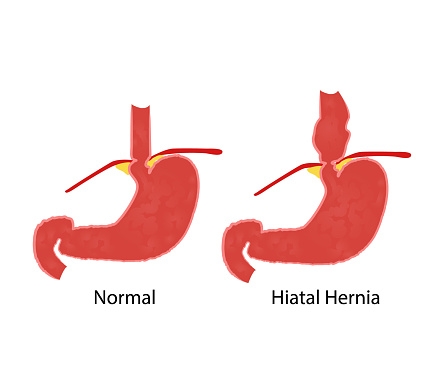Is there a Link Between Fast Food, Allergies, and Obesity?
Obesity is a major health concern for Americans today. Being overweight can increase the risk of heart disease, diabetes, and many other serious life-threatening conditions. Obesity is also linked to asthma and its complications in both adults and children. Research has also discovered an interesting link between obese individuals and their propensity for rhinitis.
Rhinitis and Obesity Connected
The Journal of Allergy and Clinical Immunology (JACI) published a study on the two conditions, studying data from the U.S. National Health and Nutrition Examination Survey that looked at data from 4,906 adults and 2,358 children. Participants were evaluated for obesity by body mass index (BMI) and waist circumference. Patients who reported nasal symptoms and were diagnosed with allergies or hay fever by a doctor were determined to have rhinitis. Then rhinitis patients were further segmented into allergic and non-allergic rhinitis via blood testing. Those whose blood tested negative for airborne seasonal allergens were determined to have non-allergic rhinitis. Non-allergic rhinitis is defined as the presence of symptoms such as runny nose, sneezing, post-nasal drip and stuffy nose with no known cause involving the immune system. Both types of rhinitis are associated with serious complications including sinusitis, chronic ear infections, obstructive sleep apnea, and asthma.
The research found that adults who are obese or overweight are more likely to have non-allergic rhinitis, but there was no relationship between allergic rhinitis and weight. Children with central obesity (as determined by both their waist circumference and BMI) were also more likely to have non-allergic rhinitis than normal weight kids, but there was also no relationship between weight and allergic rhinitis. So, it appears that obese individuals are more likely to suffer from unexplained nasal symptoms that can potentially lead to serious complications such as sleep apnea and asthma.
The Fast Food -Allergy Connection
Another study in Respirology reveals an interesting link between the consumption of fast food and allergic diseases including asthma. The study, “Is the Consumption of Fast Foods Associated with Asthma or Other Allergic Diseases?” reviewed 16 case studies where participants ate “foods prepared quickly, with poor nutritional quality.” The study found that the consumption of fast food hamburgers “correlates to asthma is a dose-response pattern.” The study noted a connection between obesity and asthma, allergic rhinitis, and wheezing.
The connection between the increased consumption of fast foods and obesity is well documented. Research shows a connection between obesity and asthma and/or rhinitis and a connection between fast food consumption (which often leads to obesity) and asthma and/or rhinitis. The reasonable conclusion to draw is that limiting the consumption of fast foods and the maintenance of a healthy body weight could be helpful if one suffers with rhinitis, sleep apnea, and/or asthma.
If you have tried medically supervised weight-loss programs without success, you may want to consider weight loss surgery. Dr. Preeti Malladi is a board-certified, Dallas-based, bariatric surgeon who specializes in minimally invasive general and advanced surgery. If you have questions about weight loss surgery, consult with our bariatric surgeon Dr. Preeti Malladi.







